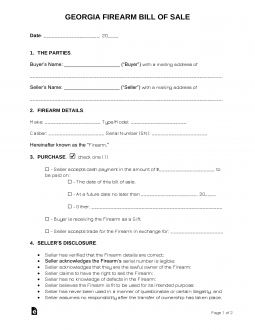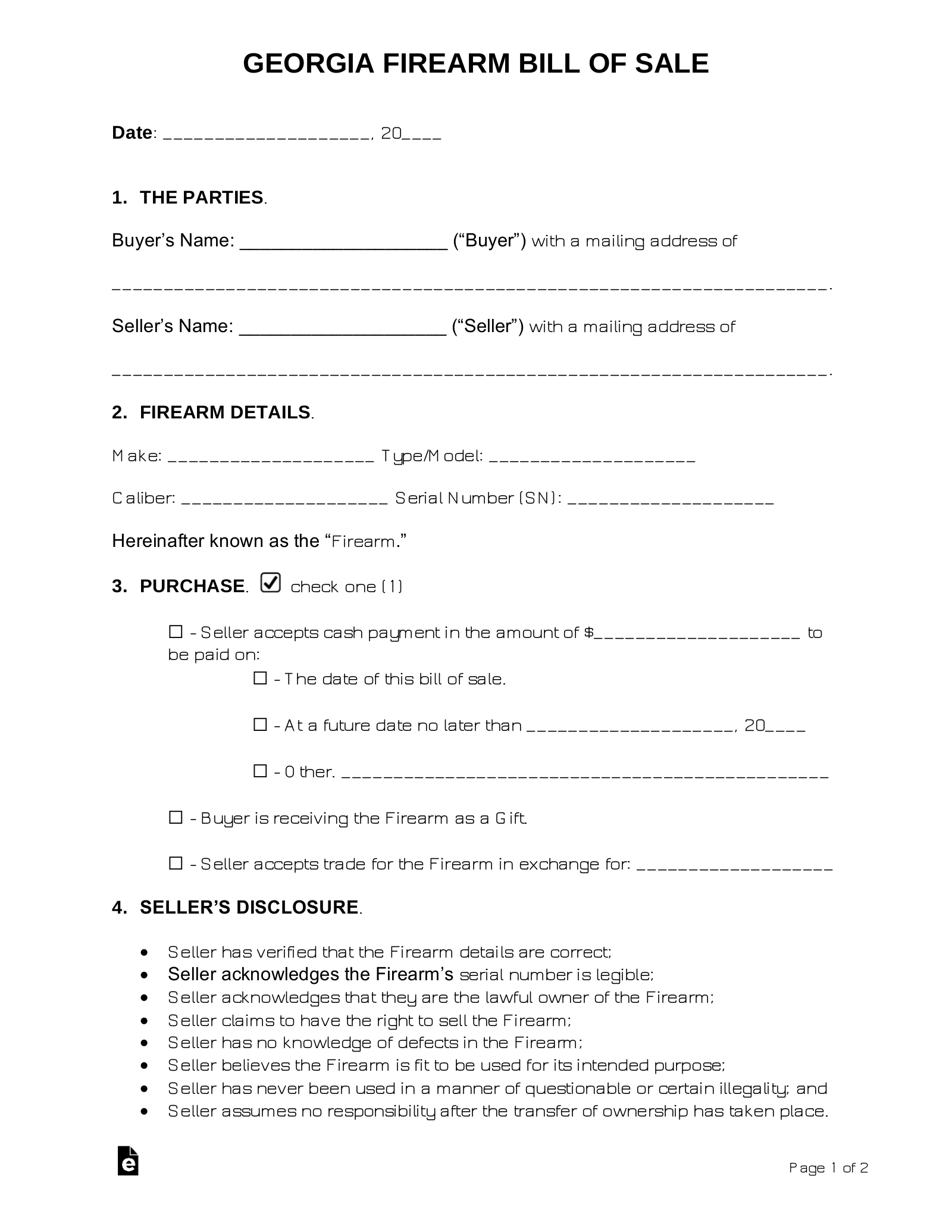Updated September 04, 2023
A Georgia firearm bill of sale is a legal document that proves that the sale and purchase of a firearm occurred between two (2) parties in the State of Georgia. This document also proves the change of ownership and provides details about the sale. It does require notarization. No signatures should be provided until a notary public has been retained and all signing parties are in their presence.
Table of Contents |
Privately Selling a Firearm
Anyone who is legally eligible to own a firearm can sell it in a private transaction, as long as the purchaser is also eligible to buy and own a firearm.
Prohibited from Buying
Specific persons are prohibited from purchasing a firearm in Georgia.[1]
- Any person who is prohibited by this Code section from possessing a firearm because of conviction of a forcible felony or because of being on probation as a first offender for a forcible felony pursuant to this Code section and who attempts to purchase or obtain transfer of a firearm shall be guilty of a felony and shall be punished by imprisonment for not less than one nor more than five years.
Registering a Firearm
Georgia does not have any laws requiring the state registration of firearms.
Concealed Carry
Individuals must have a valid Weapons Carry License in order to concealed carry in the state of Georgia.
How to Apply
Applicants must be at least twenty-one (21) years old, or eighteen (18) if they are active duty military or honorably discharged. They must also be a Georgia resident, U.S. citizen or legal resident, have no disqualifying legal convictions (felonies, drugs, domestic violence, etc.), have not been admitted to a mental health or substance rehabilitation facility within the past five (5) years, and have never been admitted to a mental health facility against their will.
Step 1 – Bring the following materials to the local probate court: proof of identity, proof of Georgia residency, and proof of U.S. citizenship or INS number.
Step 2- Obtain and complete an application from the probate court clerk (the application process is also available online).
Step 3 – Submit the application to the clerk and pay the appropriate filing fee (varies by county).
Step 4 – Provide fingerprints with the clerk, or have them processed within five (5) days of applying.
Step 5 – Pass a background check.
Step 6 – The court will issue or deny the license after roughly thirty (30) days.
Reciprocity
Under Georgia code,[2] the following states do not have reciprocity agreements with Georgia: California, Connecticut, Delaware, Georgia, Hawaii, Illinois, Maryland, Massachusetts, Minnesota, Nebraska, Nevada, New Jersey, New Mexico, New York, Oregon, Rhode Island, Vermont, and Washington.


